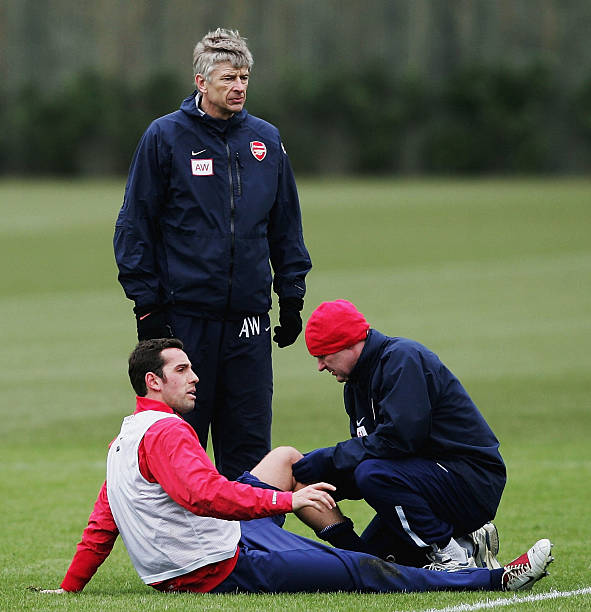Edu has revealed how Arsene Wenger helped him adapt to life in England after his move to Arsenal from Brazil in 2001, as did Sol Campbell… sort of.
Edu admits he got a bit of a shock when he moved to London from Corinthians in 2001. And not just because of the weather…
“So cold! In my first week in January, I didn’t wear gloves,” he said. “My English wasn’t good, I was shy and I went out there thinking, “How can they train in this?”
“Sol Campbell (always tackled in training). Always Sol. Training in Brazil is lower intensity. Here it is bang, bang… but it’s nice.
“But I was feeling sad. I lost my sister a week before I arrived. I was not in a good way. But I found a club and manager that worried about me as a person, rather than as a footballer.
“Every day Arsene Wenger pulled me into his office. He wanted to check I was OK and check how my family were. He cared so much and it made me feel so good. He let my dad watch training. I come to London once a year and always go to see him.”

The midfielder was at Arsenal for four years and won two titles and two FA Cups during his time as a Gunner before he signed for Valencia in 2005.
Seeing the 39-year-old still talk about Arsene Wenger so positively is heart-warming. At times, the boss is criticised for not being hard enough on his players, usually after a poor performance, but the flip side to the Frenchman’s comforting demeanor is that he makes his men feel cared for and safe.
While this may not be a part of football, it’s a part of being human, and the amount of respect former Gunners still have for him – for the most part – shows what he was like as a person and not just a manager while they were at the club.
Having mental health support at a football club is just as important as having physios and, as Edu says, they need to worry about their players as people and not just athletes.

